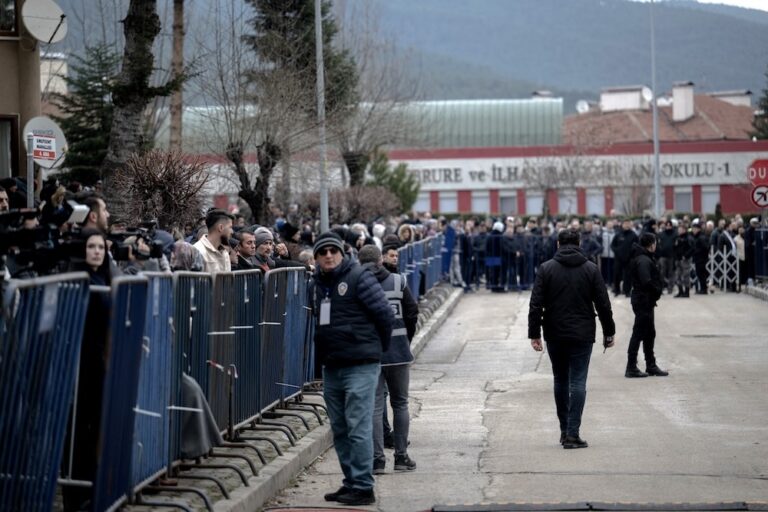Mehmet Ali Birand, a producer for the Turkish television station Kanal D, is facing charges for "spreading propaganda for the PKK" after he signed his name to several letters.
(BIANET/IFEX) – On 21 September 2010, a judge for the Istanbul 9th High Criminal Court postponed a case against 10 defendants until 1 February 2011. The defendants include journalist Mehmet Ali Birand, former politician of the dissolved pro-Kurdish Democratic Society Party (DTP) Aysel Tugluk, and lawyer Mahmut Sakar. Birand is a producer at the Turkish television station Kanal D. They have been charged with “spreading propaganda for the PKK”.
The court has decided to wait for the execution of an arrest warrant issued for Sakar, who is the lawyer for Adullah Ocalan, the leader of the militant PKK.
Tugluk had previously been sentenced to one year and six months in prison and was banned from practicing law. However, the Court of Appeals overturned the ruling. He is now being tried with the other defendants.
The 10 defendants are facing prosecution over a joint letter entitled “A letter to the government.” The letter was published in “Yeniden Ozgut Gundem” newspaper between March 2003 and February 2004. The charges are furthermore based on news items entitled “Peace Call from Ocalan”, “I will defend the South-East” and “Let’s kill all joy”, which were published in “Ozgur Politika” newspaper; “A message like a threat from Imrali to the summit”, published in “Milliyet” newspaper; “Some tragedies might come”, published in “Yeni Binyil” magazine; “The whistling continues”, published in “Hurriyet” newspaper; and news items published in “Gozcu” newspaper, Akit, Turkiye, the Kanal D Main News Bulletin and the Nasname internet site.
The defendants have been indicted under Article 220/7 of the Turkish Criminal Code on “knowing and willingly aiding and abetting an illegal organization as part of the hierarchical structure of the organization” and Article 314/2 of the Turkish Criminal Code for “membership in an armed organization”. If convicted on both counts, the defendants could face up to 13 years in prison.


